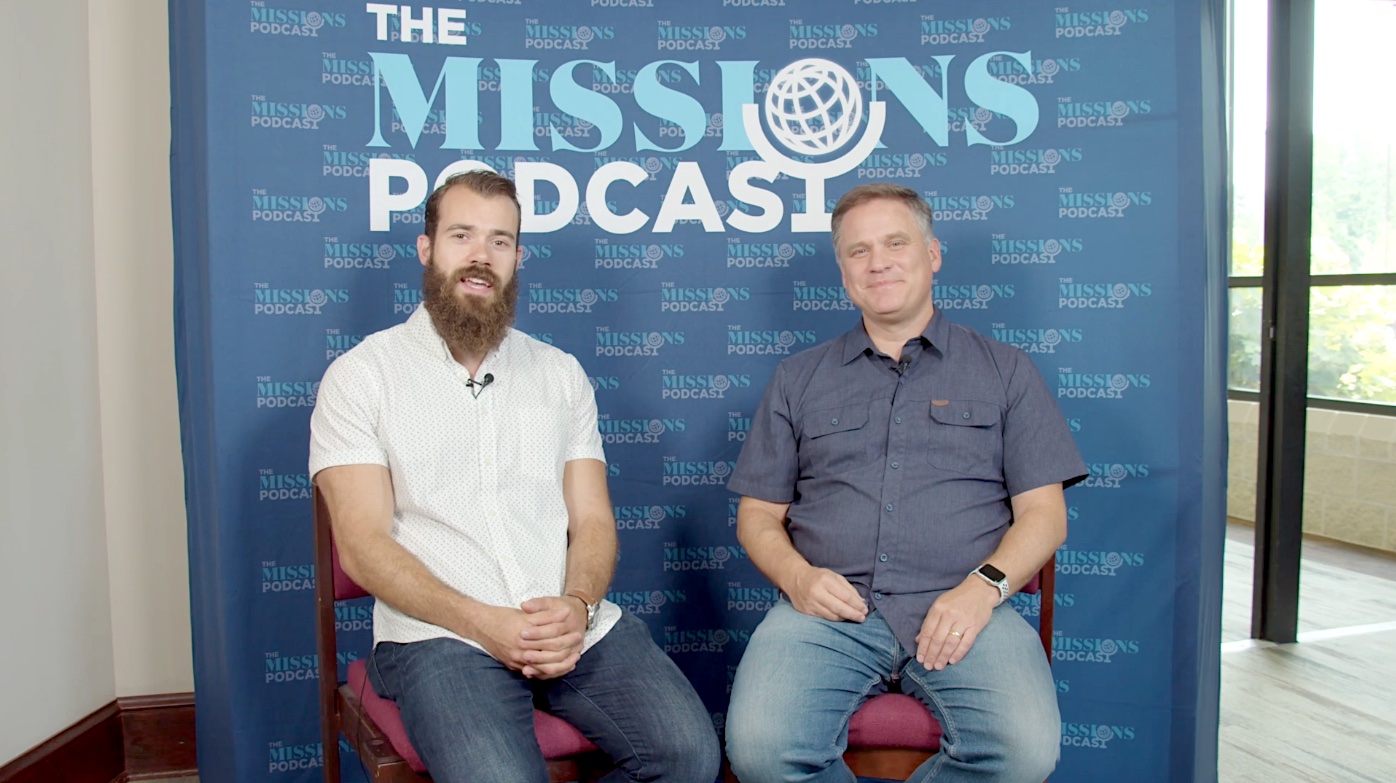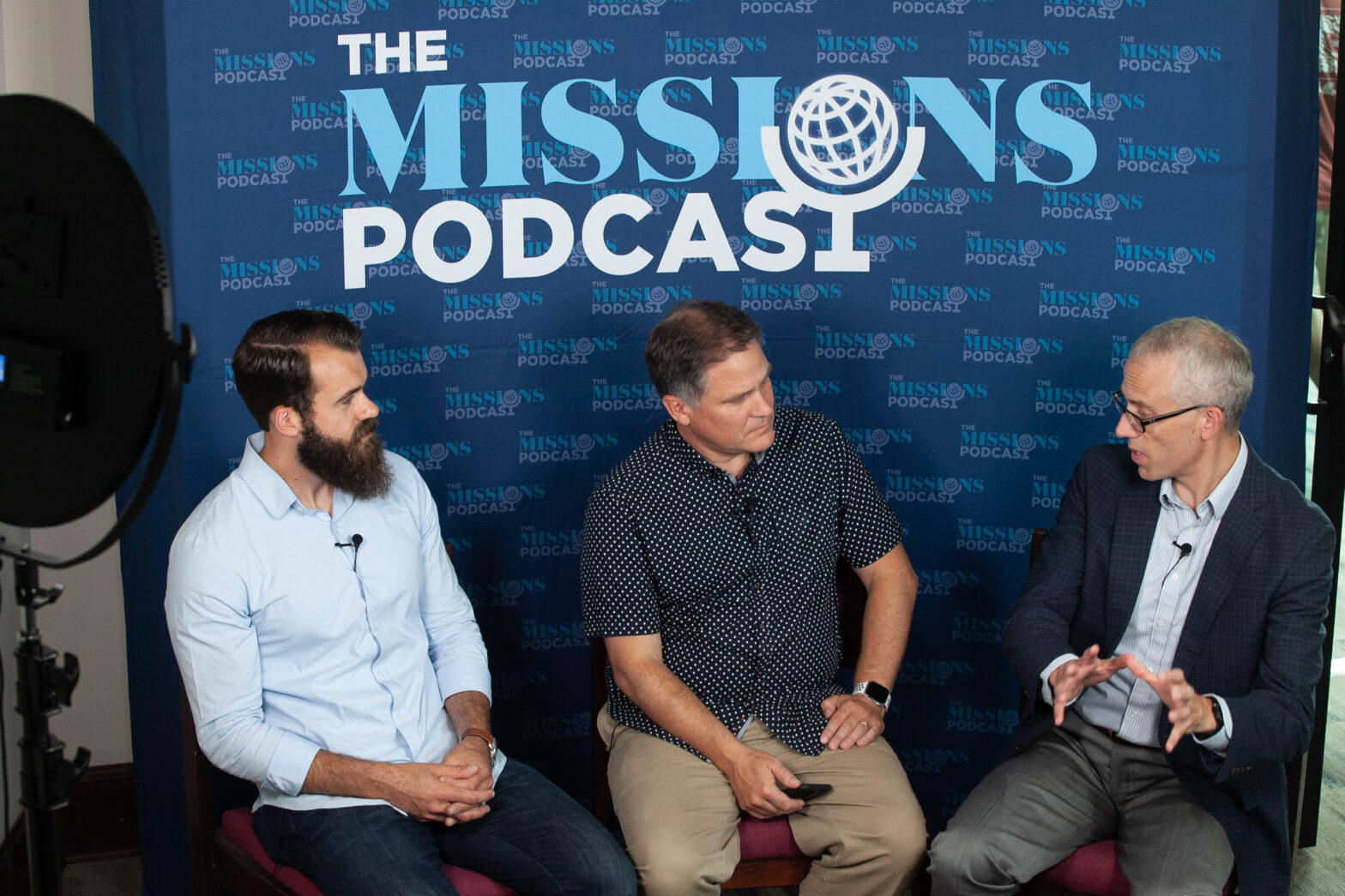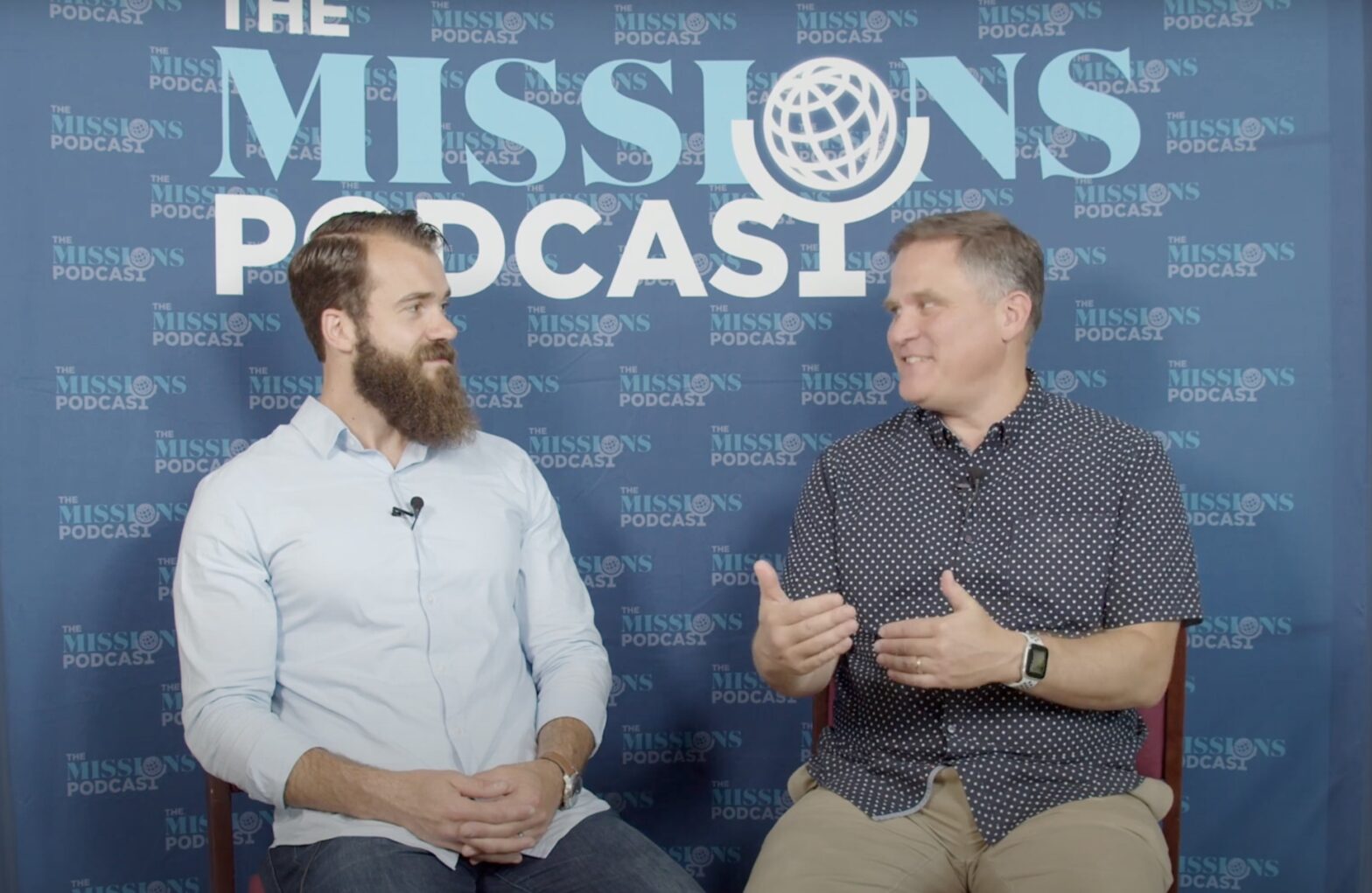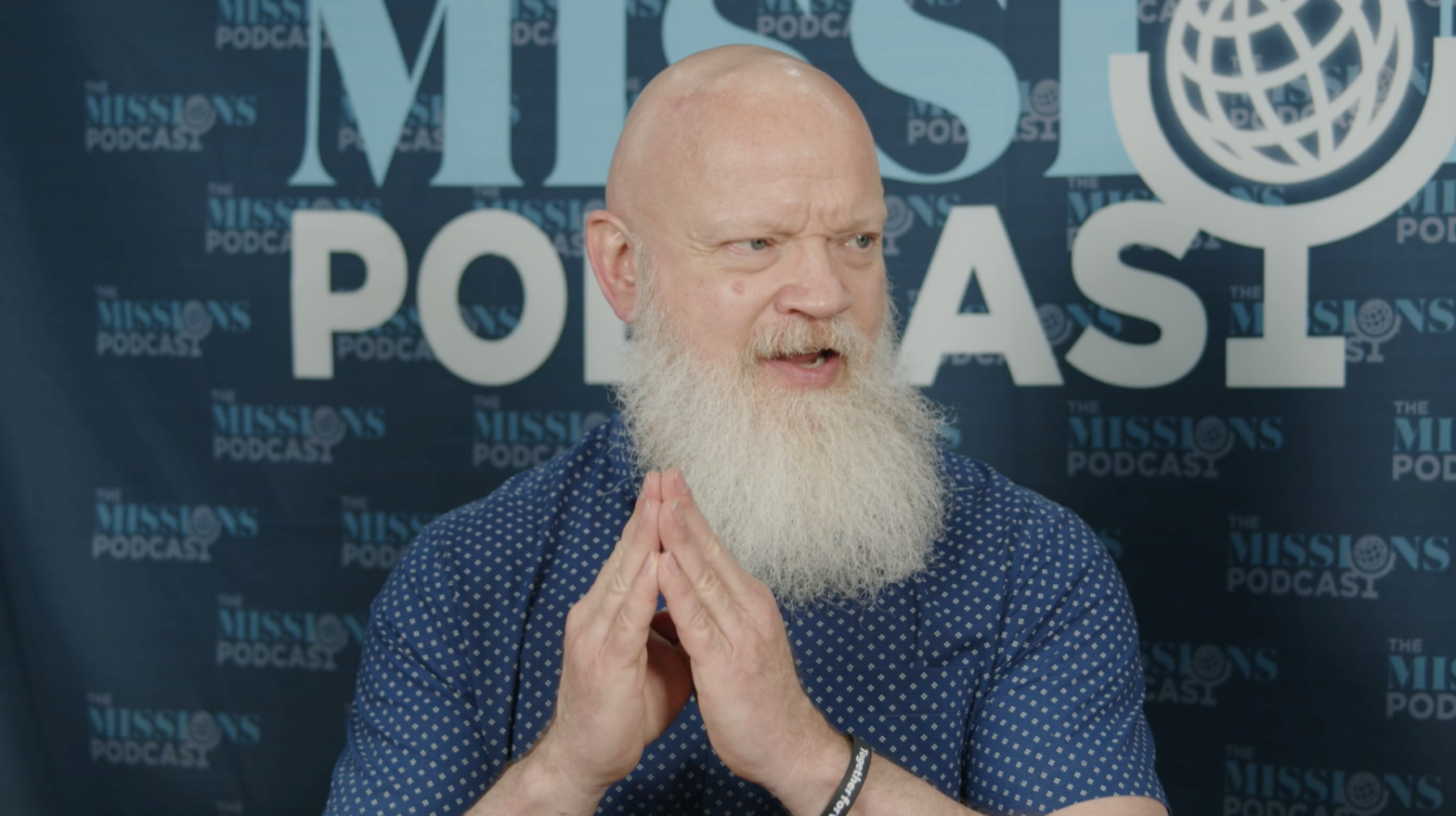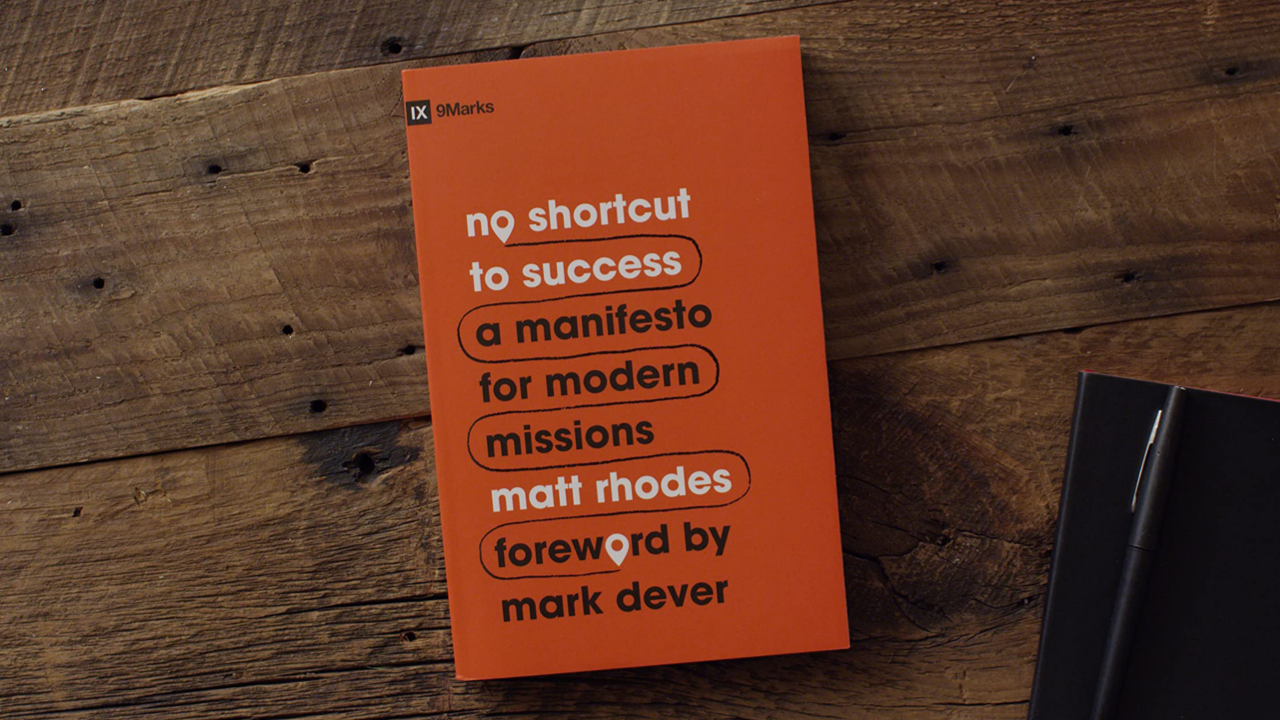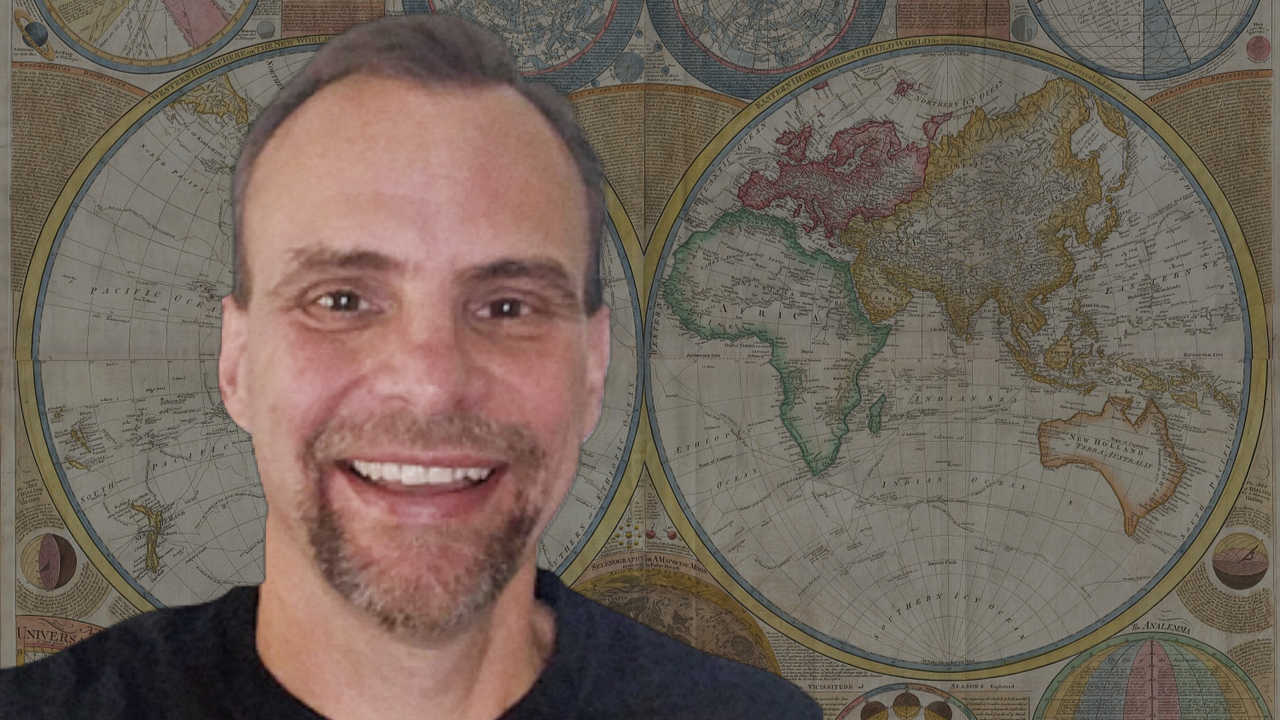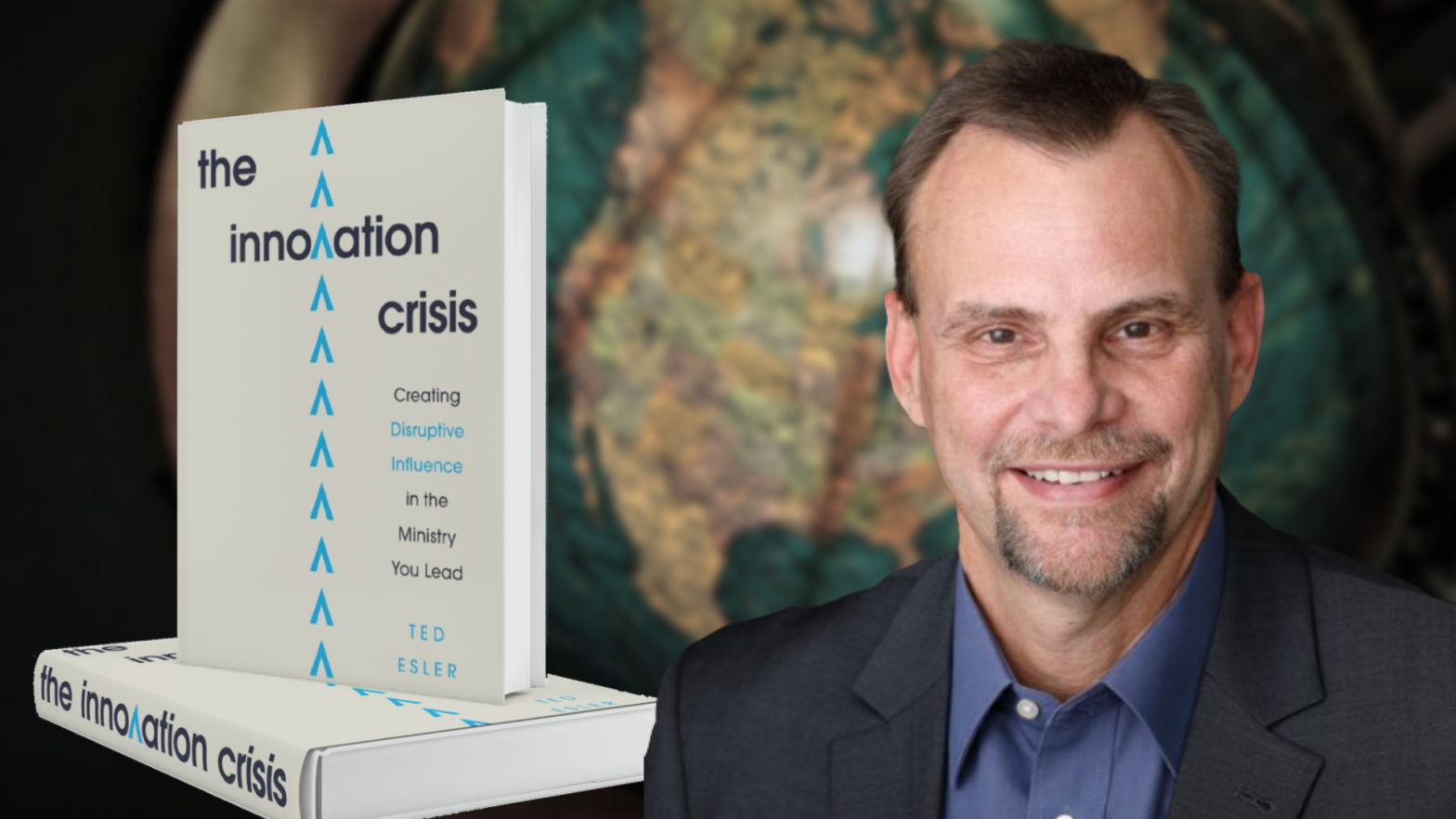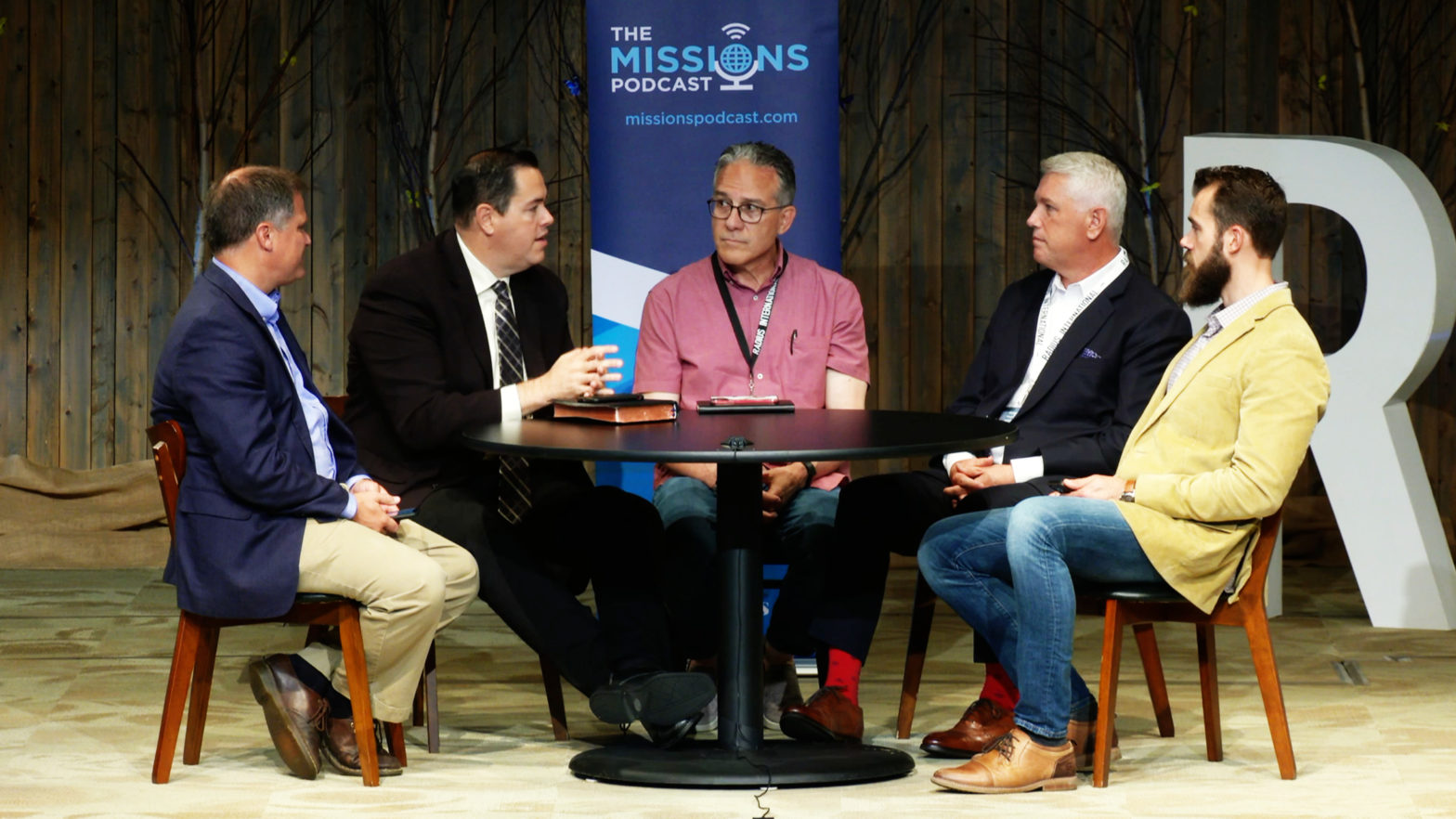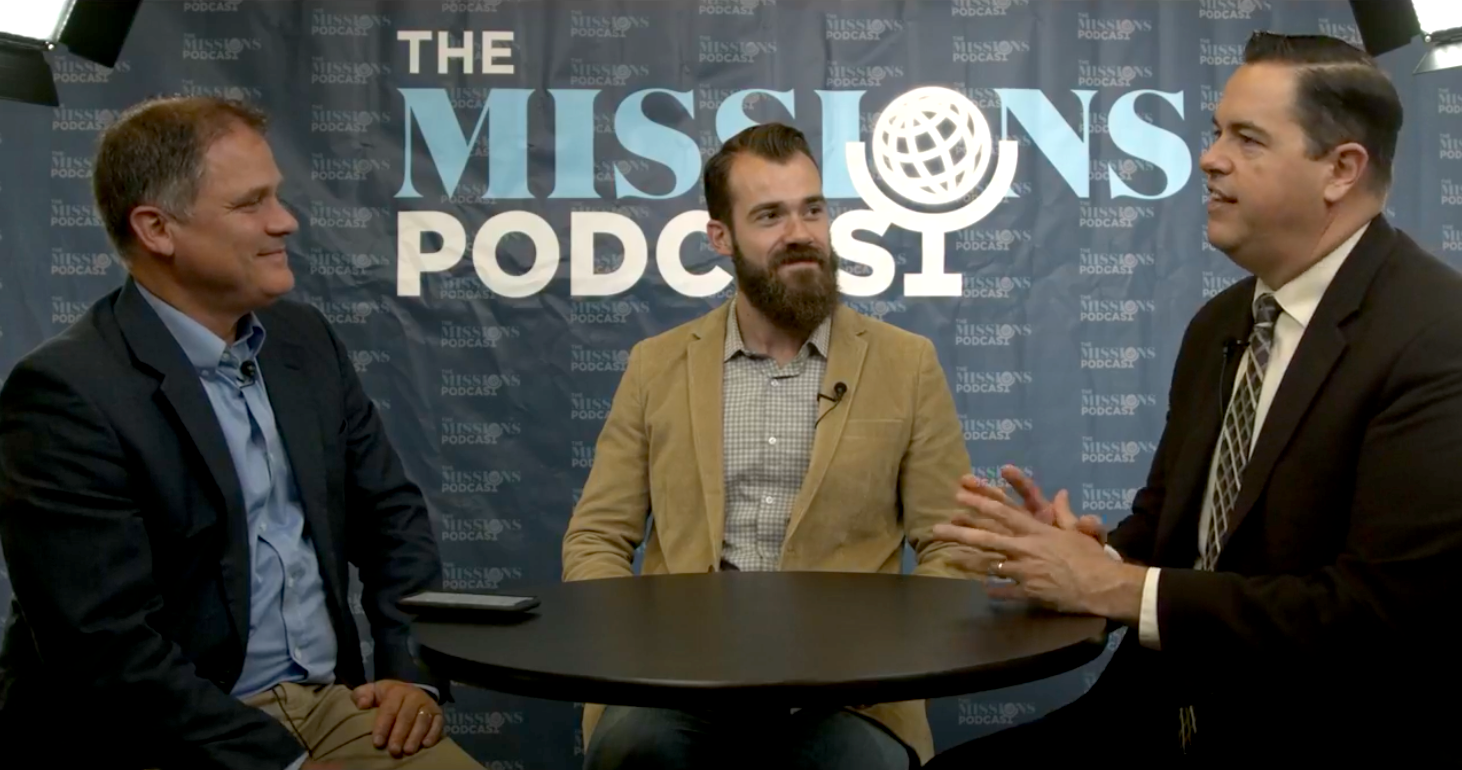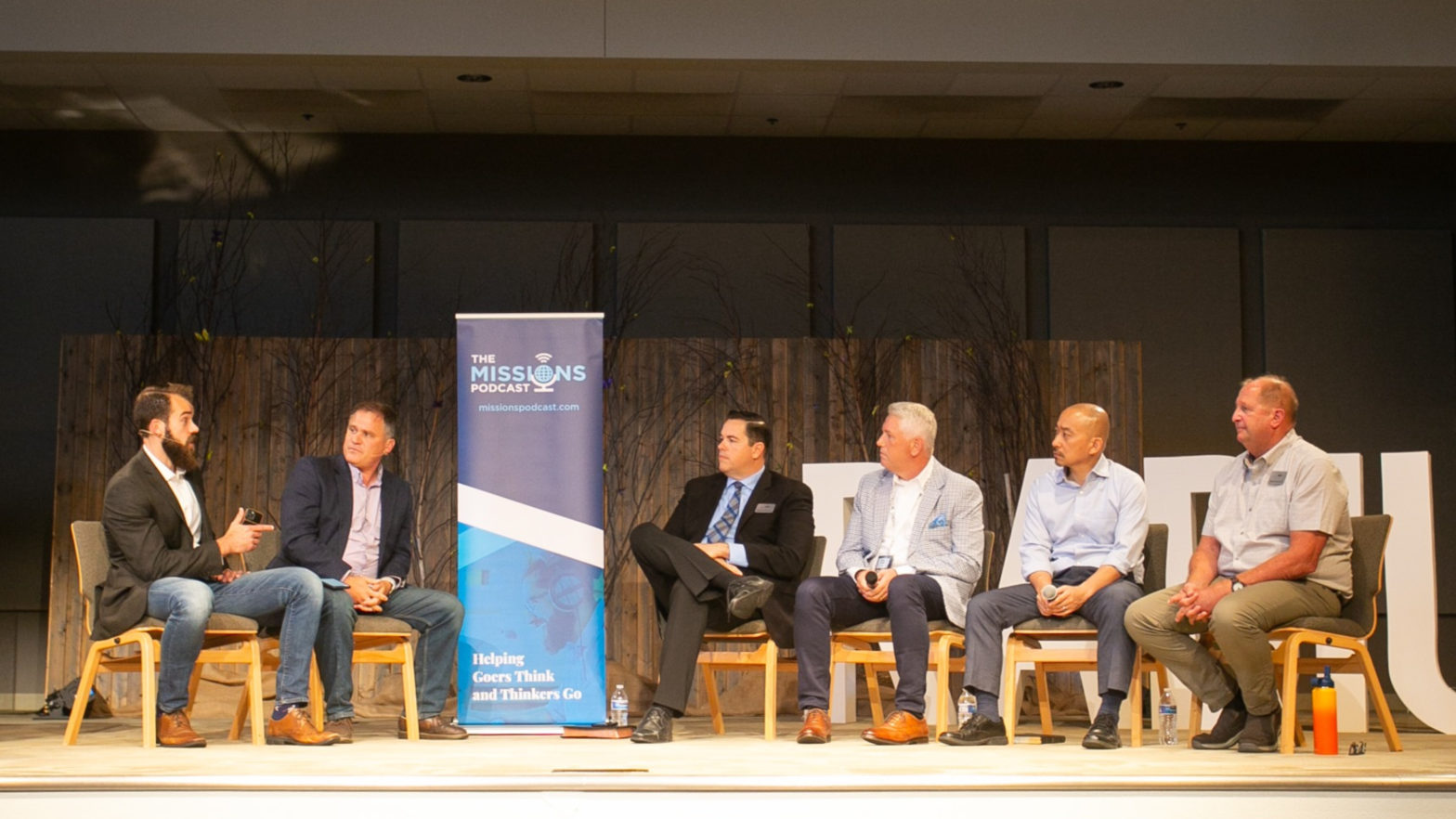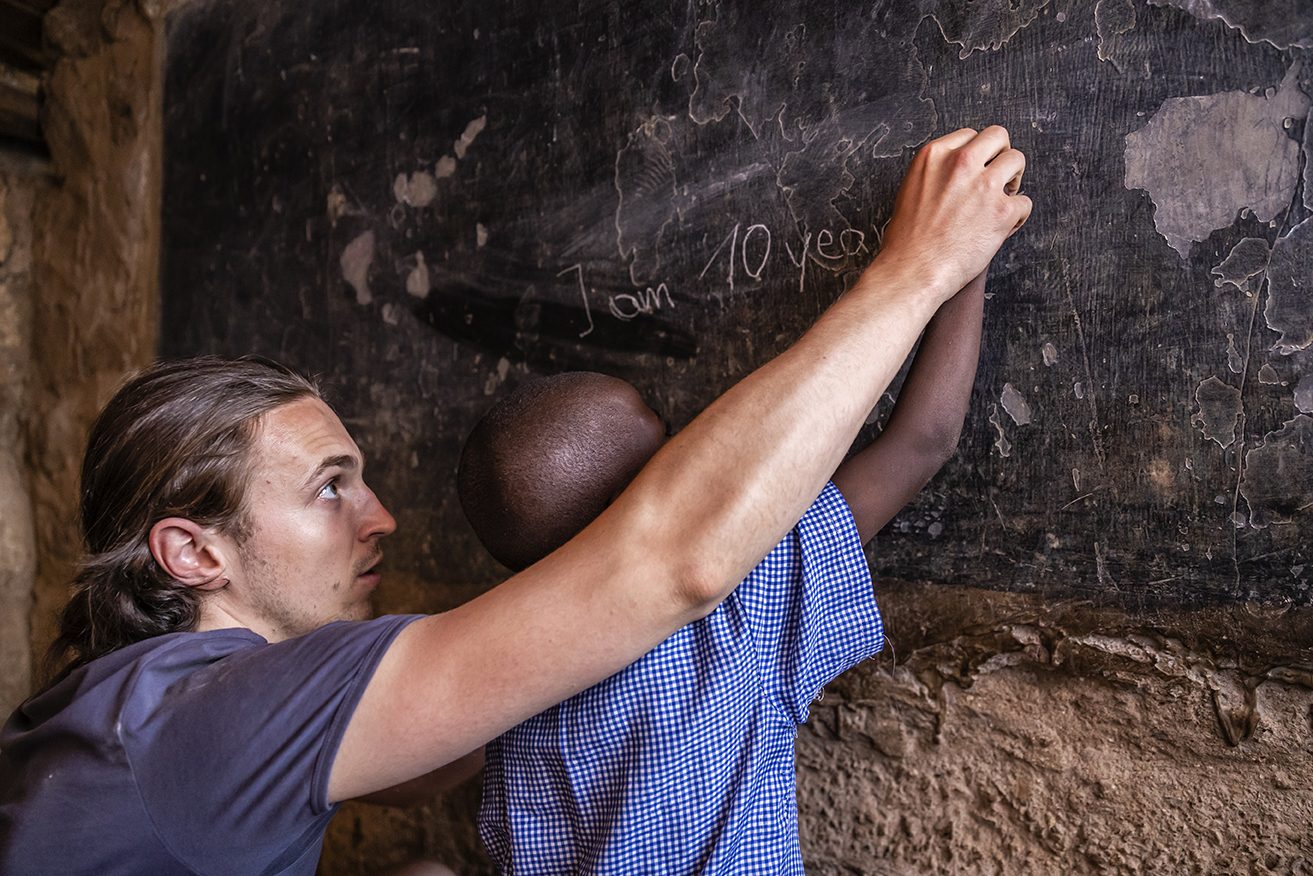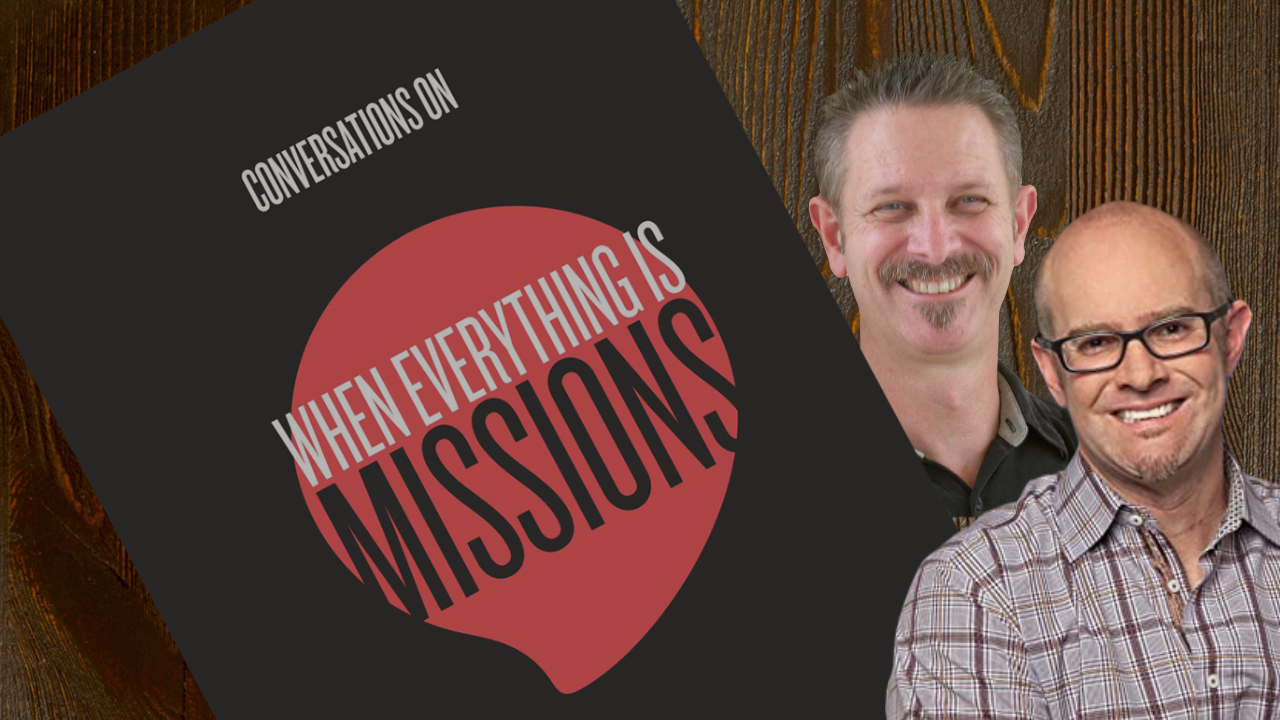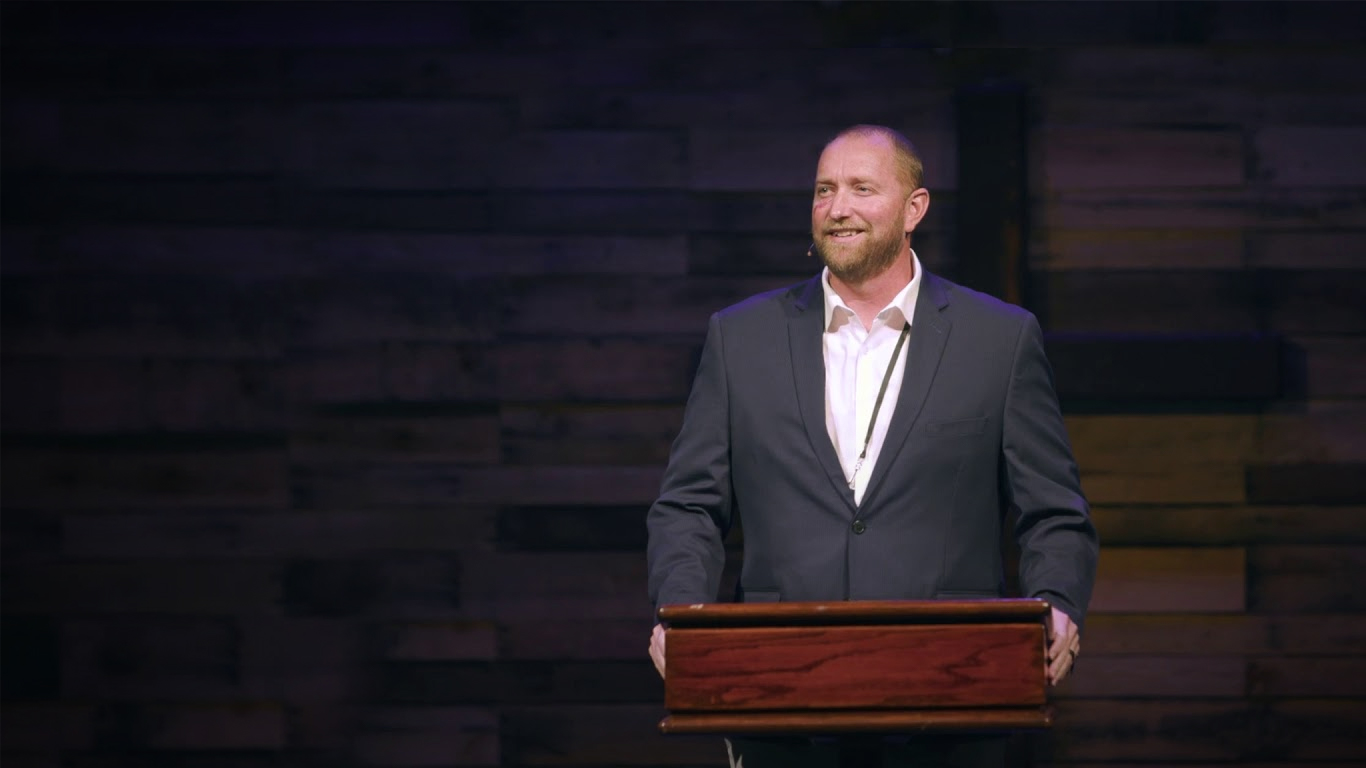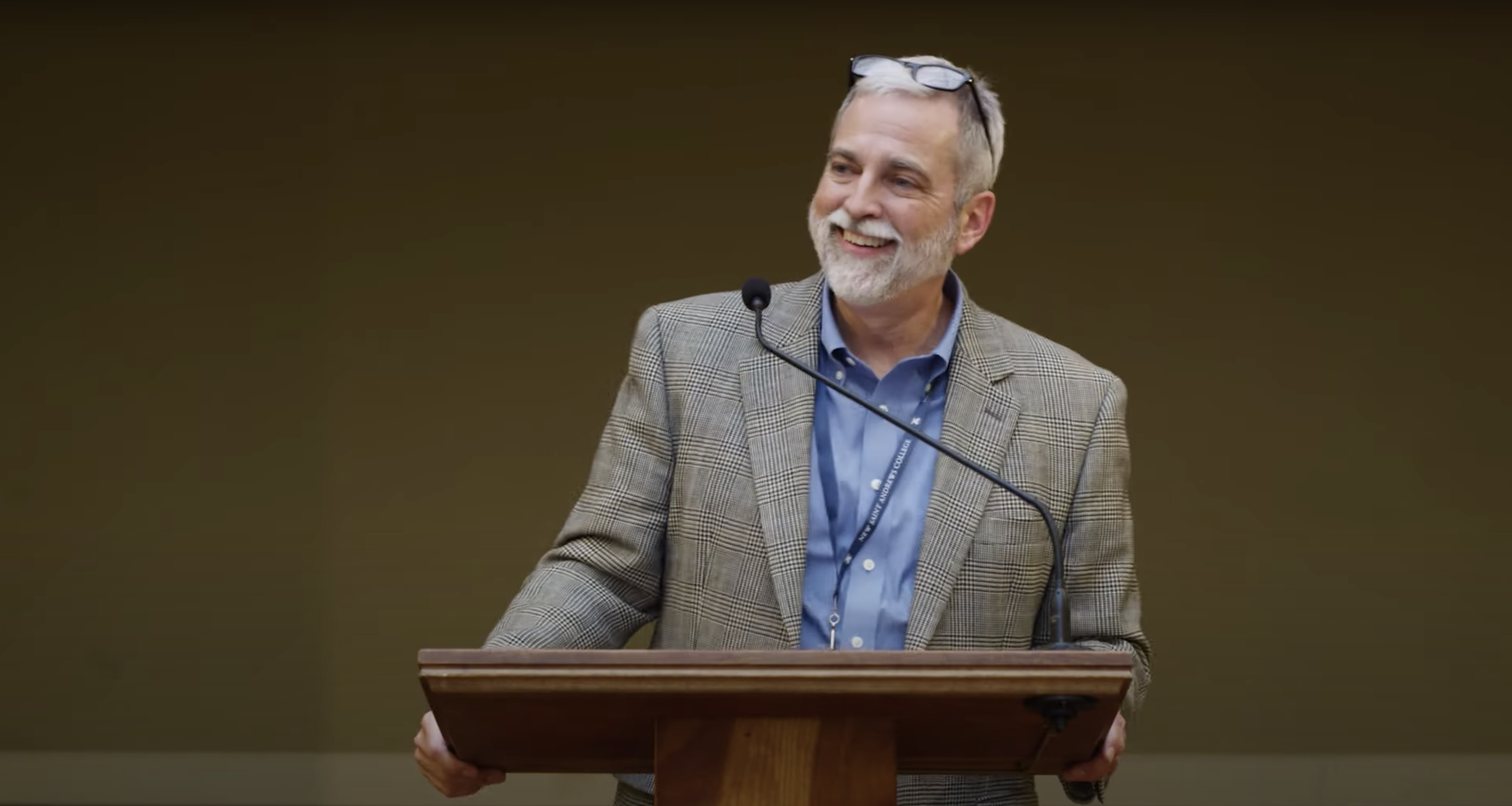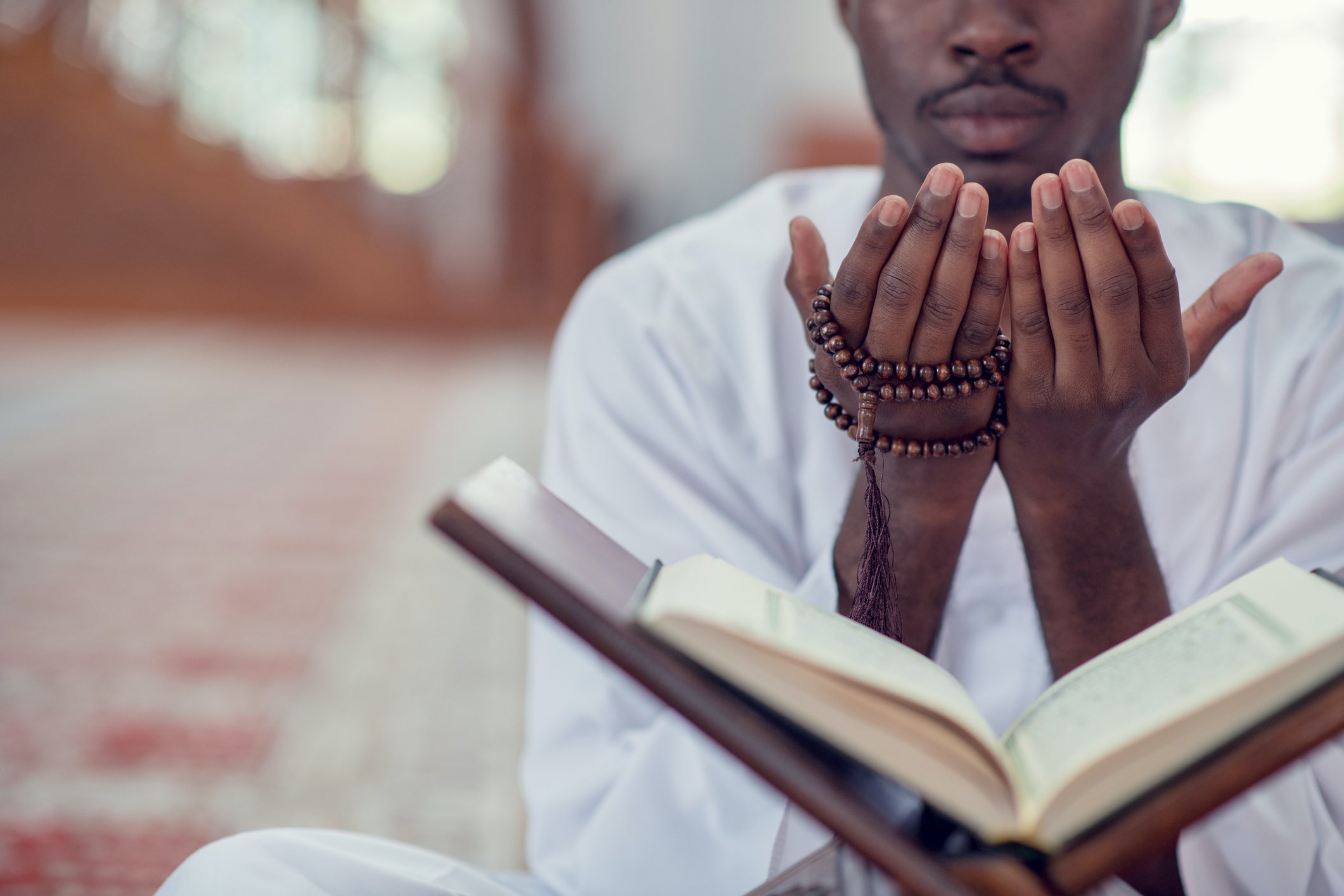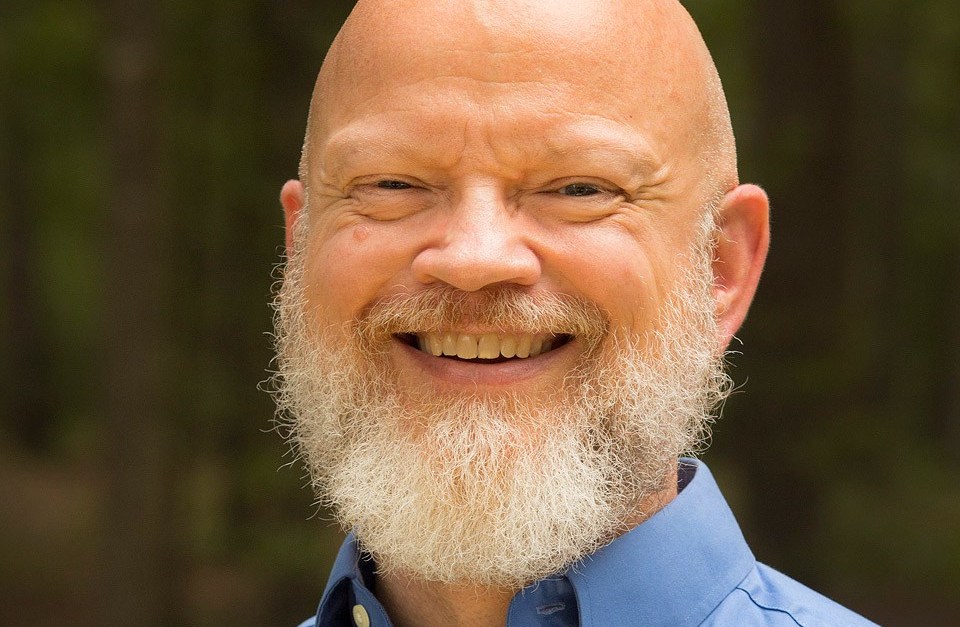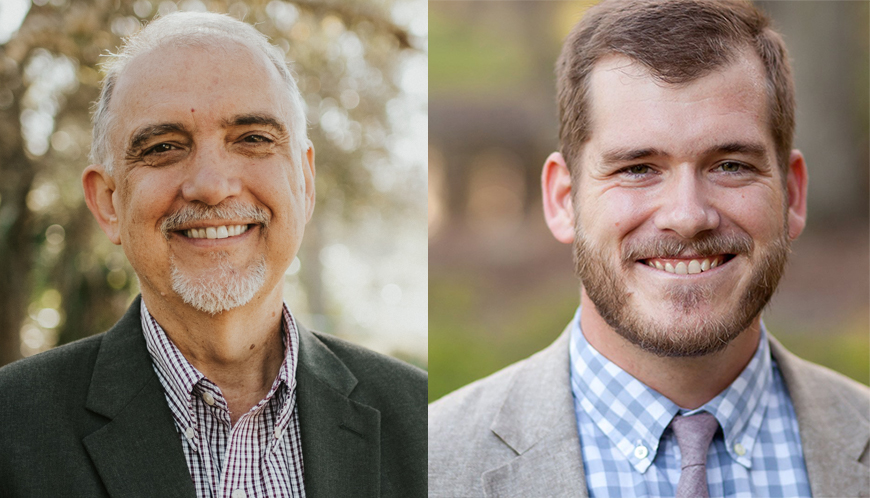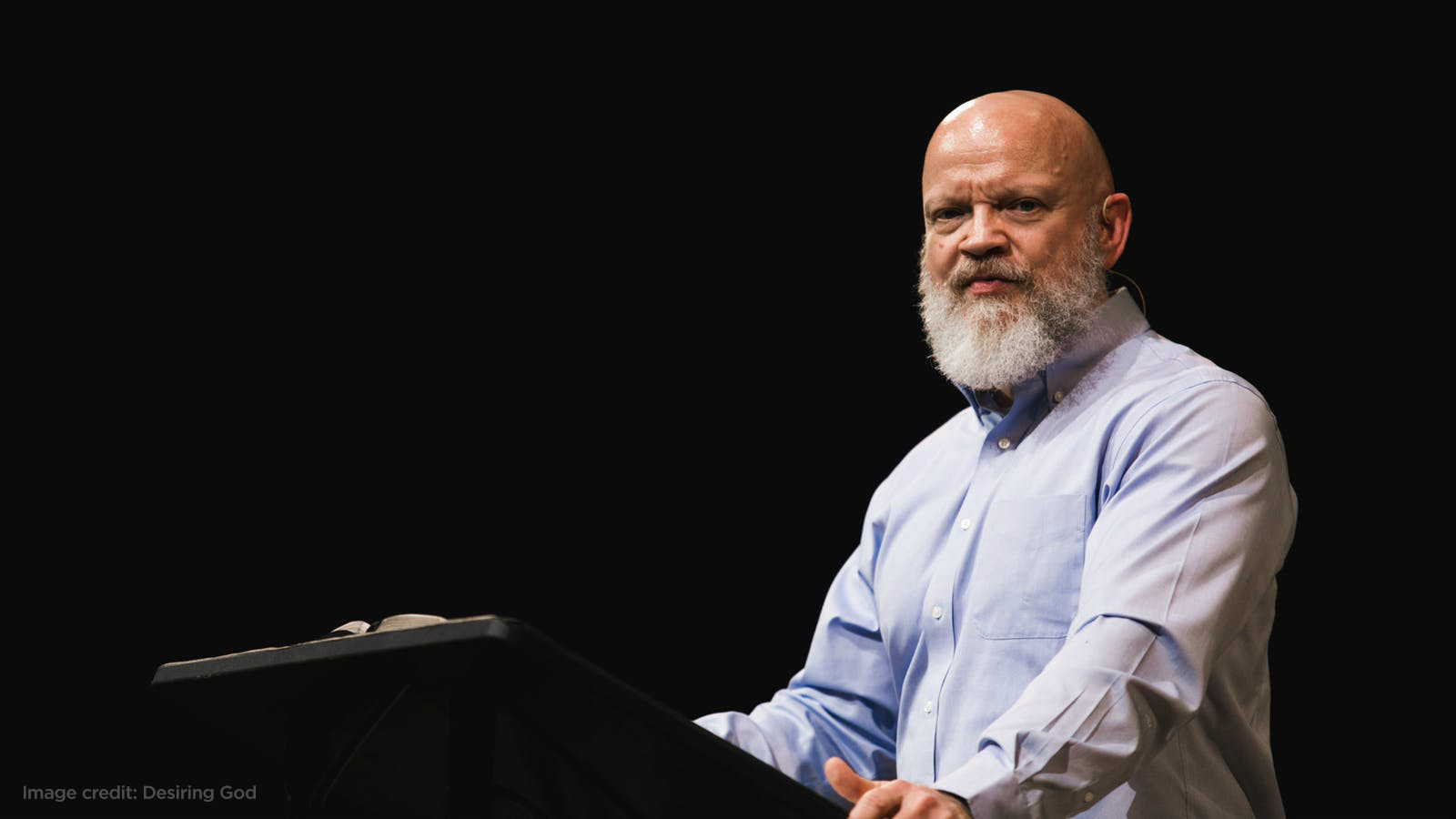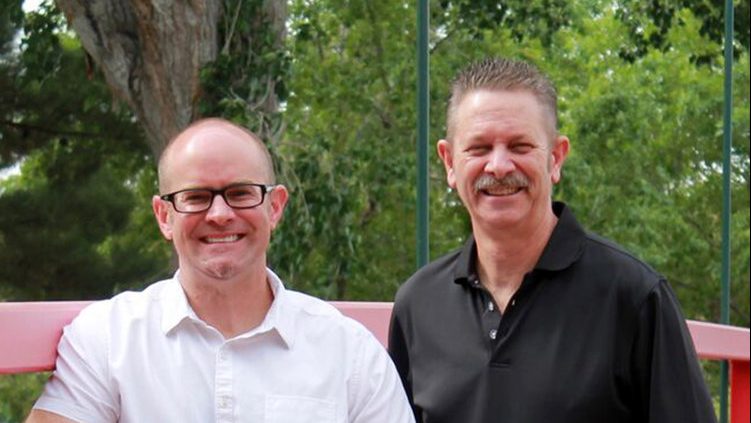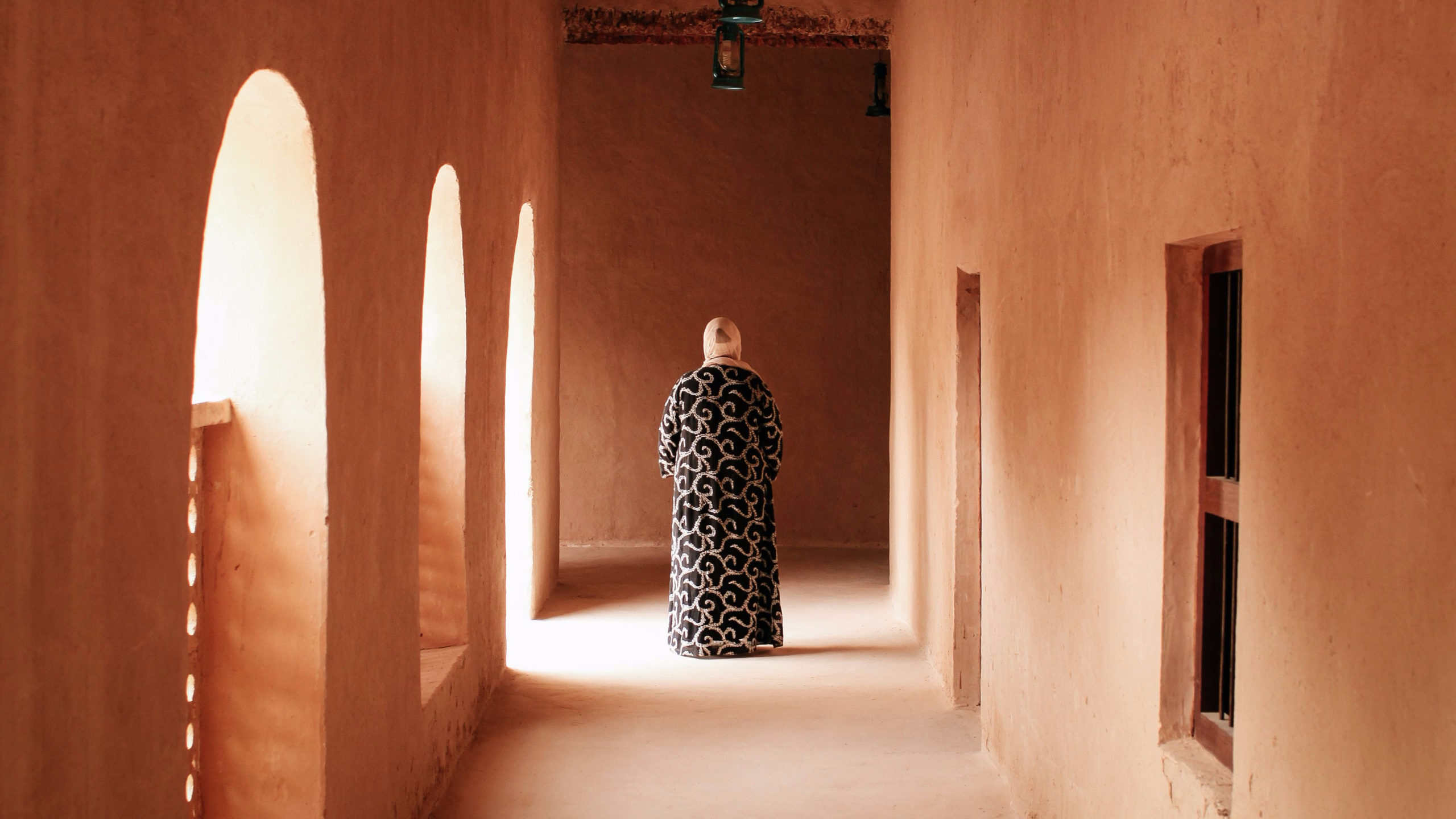English-speaking churches in cities like Dubai or Bangkok don’t appear to be the most missiologically strategic—at least on paper. But as with any local church, there’s more to international churches than meets the eye. Dr. Michael Crane returns to the show to share the beauties, challenges, and unique blessings of expat fellowships abroad and multiethnicContinue reading “The Beauty of International Churches: Dr. Michael Crane”
Tag Archives: missiology
‘Glurbanization,’ Church Planting, and Why Our Definition of ‘People Group’ Is Outdated: Dr. Michael Crane
Globalization has made the world smaller and smaller. Increasingly, cities are overtaking suburban and rural areas as the center of society. What does all this mean for church planting? Is the ethnolinguistic people group definition itself outdated? Missiologist Dr. Michael Crane unpacks the implications of what he calls “glurbanization.” Michael and his wife moved toContinue reading “‘Glurbanization,’ Church Planting, and Why Our Definition of ‘People Group’ Is Outdated: Dr. Michael Crane”
#RMC22: The Final Word
In this tenth and final exclusive from the Radius Missiology Conference, Alex Kocman and Scott Dunford discuss their favorite takeaways from their conversations with Kevin DeYoung, Ian Hamilton, Brad Buser, Brooks Buser, Wayne Chen, Chad Vegas, Jonathan Master, and Steve Meister. Watch the video version of this episode on the ABWE YouTube channel. Listen to allContinue reading “#RMC22: The Final Word”
#RMC22: Kevin DeYoung on the Mission of the Church
What is the church’s mission? Better yet, what isn’t her mission? Alex and Scott talk to pastor, author, and theologian Kevin DeYoung at the recent Radius International Missiology Conference. Watch the video version of this episode on the ABWE YouTube channel. Listen to all of our RMC22 exclusives here. Support this podcast and impact God’s mission.Continue reading “#RMC22: Kevin DeYoung on the Mission of the Church”
#RMC22: Why the Radius Missiology Conference?
We recently attended the 2022 Radius International Missiology Conference to capture some exclusive content. Here’s the first in a series of exclusive, behind-the-scenes episodes from RMC. Enjoy! Watch the video version of this episode here. Support this podcast and impact God’s mission. Want to ask a question or suggest a topic? Email alex@missionspodcast.com.
T4G22: Zane Pratt on Methods and Defining ‘Church’
When it comes to the popular methods used on the mission field today, we often talk past one another. What do we mean by “church,” “convert,” or “disciple”? Zane Pratt, vice president of training for IMB, returns to the show. Hear our previous interviews with Zane here. You can watch the video version of thisContinue reading “T4G22: Zane Pratt on Methods and Defining ‘Church’”
No Shortcuts to Success: Matt Rhodes’ ‘Manifesto’
Watch the video version of this episode here. Americans have a need for speed—and missionaries aren’t immune. But in his new “manifesto,” author and missionary Matt Rhodes explains why faithful missions requires long-term commitment. This week, we talk to him about historic missionaries’ example, why definitions matter, and how to gain agreement on a fieldContinue reading “No Shortcuts to Success: Matt Rhodes’ ‘Manifesto’”
Mission Affirmed: Elliot Clark on Recovering Paul’s Missionary Motivation
Watch the video version of this episode here. Christians talk a lot about grace. We get it from the Apostle Paul. Yet Paul also yearned to be approved by the Lord on the last day for his missionary work. How do we hold these themes together? Elliot Clark, author of Mission Affirmed: Recovering the MissionaryContinue reading “Mission Affirmed: Elliot Clark on Recovering Paul’s Missionary Motivation”
Helping Goers Think and Thinkers Go: Paul Davis on Media and Missions
Why does this show exist? What do media and technology have to do with missions? This week, ABWE President Paul Davis turns the table on Scott Dunford and Alex Kocman in a three-way conversation about the state of the show and why it’s critical to equip missionaries and church leaders through resources online. Subscribe now toContinue reading “Helping Goers Think and Thinkers Go: Paul Davis on Media and Missions”
Chad Vegas: Defining the ‘Proclamational Model’ (Part 2)
Watch the video version of this episode here. This week, we continue our conversation with Chad Vegas defining proclamation, outlining the dangers of pragmatism, and sketching a vision for a biblically-driven missiology. Miss part 1? Listen here. Chad is the founding pastor of Sovereign Grace Church of Bakersfield, the founding board chairman of Radius InternationalContinue reading “Chad Vegas: Defining the ‘Proclamational Model’ (Part 2)”
Chad Vegas: Defining the ‘Proclamational Model’ (Part 1)
Watch the video version of this episode here. In the missions world, there’s a rift between movement practitioners and advocates of biblical proclamation. Why the disagreement? And is there such a thing as the “proclamational model”? Chad Vegas weighs in this week. Chad is the founding pastor of Sovereign Grace Church of Bakersfield, the foundingContinue reading “Chad Vegas: Defining the ‘Proclamational Model’ (Part 1)”
Doctrine, Pragmatism, and Movements: A Discussion With Ted Esler (Part 2)
Our conversation with Ted Esler continues as we try to define words like “disciple” and “church” and map out both the common ground and the battle lines. Then, we try to chart the path forward. You can listen to part one. Ted Esler is the president of an association of agencies and churches representing over 30,000Continue reading “Doctrine, Pragmatism, and Movements: A Discussion With Ted Esler (Part 2)”
Doctrine, Pragmatism, and Movements: A Discussion With Ted Esler (Part 1)
What are disciple-making movements and church planting movements? Do these methods, carried to their logical conclusions, undermine our doctrines of the local church and of conversion? Or are we being too theologically rigid? Let’s reason together, build common ground, and determine where the real issues lie. Hear part 1 in a two-part series with MissioContinue reading “Doctrine, Pragmatism, and Movements: A Discussion With Ted Esler (Part 1)”
Is Obedience-Based Discipleship Biblical? Alex and Scott Discuss
What is obedience-based discipleship, and is it biblical? The issue isn’t as simple as it seems. This week, Alex and Scott discuss Alex’s article addressing the topic and explore all the related questions of law, gospel, and salvation by faith alone. Support this podcast and impact God’s mission. Want to ask a question or suggest aContinue reading “Is Obedience-Based Discipleship Biblical? Alex and Scott Discuss”
Multiethnic or Homogeneous? A Discussion on Church Planting
Should church planters target a specific people group (the homogeneous unit principle) or begin a multiethnic congregation from day one? The answer isn’t always simple. This week, BJ, a church planter working with diaspora Muslim peoples, weighs in as Scott and Alex have an honest conversation. Learn more about EveryEthne. Love the show? Want toContinue reading “Multiethnic or Homogeneous? A Discussion on Church Planting”
Is Innovation in Ministry Biblical? A Dialogue With Ted Esler
Ted Esler believes there’s a crisis in the Christian world. He believes leaders in ministry and missions aren’t innovating. Is this true—and is innovation itself biblical? Ted joins Scott and Alex this week to discuss his new book, The Innovation Crisis. Ted Esler is the president of Missio Nexus, an association of agencies and churchesContinue reading “Is Innovation in Ministry Biblical? A Dialogue With Ted Esler”
#RMC21 Panel 2: Sending Well With Paul Davis, Chad Vegas, and Barry Brown
Sending missionaries has taught these pastors what to do—and what not to do. Chad Vegas, Paul Davis and Barry Brown join Scott Dunford and Alex Kocman in this panel from the 2021 Radius Missiology Conference. Watch the video version of this episode: youtu.be/NEyXBNj9HTU. Want to ask a question or suggest a topic? Email alex@missionspodcast.com. The MissionsContinue reading “#RMC21 Panel 2: Sending Well With Paul Davis, Chad Vegas, and Barry Brown”
#RMC21: Chad Vegas and Alex Kocman on Their Upcoming Book on Missions
Recorded live at the Radius Missiology Conference in Minneapolis: In this midweek exclusive, Chad Vegas, pastor of Sovereign Grace Church in Bakersfield, California, and board chairman for Radius International, joins to discuss his and Alex Kocman’s new book on missions scheduled for publication from Founders Press later this year. Watch the video version of thisContinue reading “#RMC21: Chad Vegas and Alex Kocman on Their Upcoming Book on Missions”
#RMC21 Panel 1: Trends in Missions With Chad Vegas, Paul Davis, Wayne Chen, and Brad Buser
There are some shocking—and exciting—things happening in missions. Chad Vegas, Paul Davis, Wayne Chen, and Brad Buser discuss in this panel from the 2021 Radius Missiology Conference. Watch the video version of this episode: youtu.be/rYp5XxOYp-w. Want to ask a question or suggest a topic? Email alex@missionspodcast.com. The Missions Podcast is sponsored by ABWE International. Subscribe: linktr.ee/MissionsPodcast.
Reforming Short-Term Missions: Chip Lamca Explains
Short-term missions needs to change. Missions trips shouldn’t be a means to an end—they should be mission. This week, former missionary and professor Chip Lamca unpacks his recent dissertation work and explains how to reform the uniquely modern phenomenon of short-term missions. We also tackle guidance for college students, what “reverse short-term missions” trips are,Continue reading “Reforming Short-Term Missions: Chip Lamca Explains”
Why Every Christian Isn’t a Missionary: Conversations on When Everything Is Missions with Matthew Ellison and Denny Spitters
Not every Christian is a missionary, and not everything that parades itself as missional activity is. This sounds controversial—but should it? We ask Matthew Ellison and Denny Spitters, who discuss these issues in their latest book, Conversations on When Everything Is Missions, the follow-up to book to When Everything Is Missions. Hear our previous interviewContinue reading “Why Every Christian Isn’t a Missionary: Conversations on When Everything Is Missions with Matthew Ellison and Denny Spitters”
Mega Episode: Honor, Shame, and the Gospel With Chris Flanders
More and more missiologists are tired of talking about the gospel only in terms of guilt and innocence. This growing school of thought claims these concepts are “Western.” Writers like Roland Muller, Jayson Georges, and Jackson Wu say that honor and shame—not guilt and innocence—hold the keys to evangelism in Majority World cultures. Are theyContinue reading “Mega Episode: Honor, Shame, and the Gospel With Chris Flanders”
Dan Strange: A Theology of Religions and The Southgate Fellowship
We know missionaries should have a theology of God, the Bible, and salvation—but what does it mean to develop a theology of religions? And what are the bigger problems plaguing evangelical missiology? Dr. Dan Strange, theological director at Oak Hill College and co-chair of The Southgate Fellowship, joins us from London to discuss his newContinue reading “Dan Strange: A Theology of Religions and The Southgate Fellowship”
Brooks Buser Answers: How Dare Missionaries Seek to Convert?
On August 8, 2020, a simple tweet by Brooks Buser, president of Radius International, ignited a firestorm of controversy: “Thank you for the prayers for Amdu people and team. By God’s grace, there are now members of that people group who are reconciled to God, who no longer have their sins counted against them.” Skeptics,Continue reading “Brooks Buser Answers: How Dare Missionaries Seek to Convert?”
Tragedy in Beirut and What It Means for Missions: Pierre Houssney Speaks
On August 4, 2020, the world’s eyes were glued on Beirut, Lebanon as two fatal explosions in a major urban center caused at least 171 deaths, 6,000 injuries, rocked social media, and left an estimated 300,000 people homeless. Pierre Rashad Houssney is Middle East and North Africa Regional Director for Horizons International, based in Beirut,Continue reading “Tragedy in Beirut and What It Means for Missions: Pierre Houssney Speaks”
Should We ‘Follow the Science’ in Missions?
Everyone says we should “follow the science.” How should we judge our results in missions?
Questioning Contextualization? With C.R. Wiley
Missiologists are always talking about contextualizing the church to the surrounding culture. But should we accommodate to a post-Christian culture, or a culture of death like we see in the West today? It’s time for us to rethink the ubiquitous acceptance of the logic of contextualization, says C.R. “Chris” Wiley. This week, Chris returns toContinue reading “Questioning Contextualization? With C.R. Wiley”
T4G20 Panel: The Local Church and the Nations
Who are the nations, and how should the local church reach them?
Paul Davis: Why the Gospel Must Be ‘Preached’
In the missions community, we all believe the gospel must be spread. But there is increasing resistance to the idea of “preaching” or “proclaiming” the gospel with authority and simplicity. Why is that? ABWE President Paul Davis joins Scott and Alex this week to explain what is burdening him and what he’s seeing in the heart ofContinue reading “Paul Davis: Why the Gospel Must Be ‘Preached’”
The Tragic Fruit of Liberalism in Missions: Mark Tatlock Explains
We often talk about the state of theology in the American church, but what about on the mission field? In this episode, Mark Tatlock, president of The Master’s Academy International (TMAI), explains why there is reason for rejoicing but also much concern—and how the root of many heresies overseas can be traced to a gradualContinue reading “The Tragic Fruit of Liberalism in Missions: Mark Tatlock Explains”
Insider Movements: Definitions and Dangers With Matthew Bennett
Can you identify as “socio-culturally Muslim” while still following Christ—and making disciples? That question lies at the heart of the Insider Movement methodology. In this episode, Matt Bennett joins to offer definitions and explain the dangers of the Insider Movement and provide practical guidance for pastors and missionaries navigating these controversial waters. Dr. Matthew BennettContinue reading “Insider Movements: Definitions and Dangers With Matthew Bennett”
Throwback: Is Every Christian a Missionary? Matthew Ellison and Denny Spitters Answer
As we leave the Advent season and enter the new year, it’s important to get back to the basics of the Christian life. Should we consider every Christians a “missionary”—and if not, why not? This week we’re diving back into the archives to enjoy our conversation with Pioneers USA VP Denny Spitters and 16:15 President Matthew Ellison, authorsContinue reading “Throwback: Is Every Christian a Missionary? Matthew Ellison and Denny Spitters Answer”
Disciple-Making Movements: A Critical Discussion With Dr. Glenn Sunshine
Disciple-making movements (DMM) and church planting movements (CPM) are more than just buzzwords—they represent controversial methodologies that are dividing missionaries along organization and theological lines. Do these methodologies represent faulty views of conversion or ecclesiology, or are the critics guilty of prayerlessness and quenching the Holy Spirit? We’ve explored these topics in the past onContinue reading “Disciple-Making Movements: A Critical Discussion With Dr. Glenn Sunshine”
Why Theology Must Shape Mission: A Chat With Zane Pratt
It’s our 100th episode! Listen all the way through the episode for details on how to win our podcast anniversary giveaway. In honor of the occasion, we brought back a favorite friend of the show—Zane Pratt, vice president for global training for the IMB—for a heavy-hitting conversation about why our theology must absolutely, unapologetically shapeContinue reading “Why Theology Must Shape Mission: A Chat With Zane Pratt”
Brooks Buser on the Urgency of Eternity and the Dangers of Pragmatism
Do we really grasp the urgency of taking the gospel to those who have never heard? And if the task of making disciples among the unreached is so urgent, why shouldn’t we employ every pragmatic means at our disposal to finish the task? Brooks Buser weighs in this week and discusses pioneer missions, disciple-making movements,Continue reading “Brooks Buser on the Urgency of Eternity and the Dangers of Pragmatism”
What Missionaries Need to Know About the Faith and Works Debate: Chris Bruno on Justification and the Missiology of Paul and James
For New Testament students, fewer topics are more frequently studied and debated than the relationship between faith and works in the book of James and the letters of Paul. The question “how are we justified?” isn’t just a question asked in churches and seminaries—it’s also a vital question that relates to how we do missions.Continue reading “What Missionaries Need to Know About the Faith and Works Debate: Chris Bruno on Justification and the Missiology of Paul and James”
What Is the Mission of God’s People?
What is the mission of the people of God in the world? Christians often get this basic question wrong. Are the people of God primarily called to social work, church planting, evangelistic campaigns, or all three somehow? This week, Scott Dunford explains why Romans 15 establishes a paradigm for the whole body of Christ toContinue reading “What Is the Mission of God’s People?”
Faithfulness or Pragmatism? Andy Johnson on Methodologies
What are the non-negotiables of how we do missions? Is it possible to reverse-engineer what’s “working” on the field to build our methodology, or are we locked in to a finite set of prescriptions from Scripture about how to do ministry—thinks like preaching the word training elders? Andy Johnson (Ph.D., Texas A&M), Associate Pastor atContinue reading “Faithfulness or Pragmatism? Andy Johnson on Methodologies”
Do We Need to Redefine Unreached? Matthew Bennett Answers
For decades, missiologists have assumed the priority of the “unreached”—and for good reason—building entire organizational strategies around it. But do we need to redefine this term? Matthew Bennett, Ph.D., former IMB missionary and current Assistant Professor of Missions and Theology at Cedarville University, weighs in. In a recent article, Matthew argues that we’ve taken theContinue reading “Do We Need to Redefine Unreached? Matthew Bennett Answers”
Tom Ascol and Jared Longshore on the Priority of Preaching, God’s Sovereignty, and Discernment
Is preaching essential to missions, or is it a Western tradition that can be sacrificed for the sake of contextualization? Some advocates of disciple-making movements (DMM’s) claim the latter. In this interview, Tom Ascol and Jared Longshore of Founders Ministries explain why authoritative proclamation is indispensable to ministry in any culture. Later in the episode,Continue reading “Tom Ascol and Jared Longshore on the Priority of Preaching, God’s Sovereignty, and Discernment”
John Taylor: 5 Problems With Money, Nationals, and Helping That Hurts
Announcement: We’re giving away 2x free VIP tickets (a $220 value!) to For the Church in Kansas City, Sept. 24-25! Enter by Sept. 19 to be eligible for the prize. Go to missionspodcast.com/giveaway to enter now. More money, more problems. Wealth, generosity, pay scales, financial practices, and differing standards of living can all be hair-triggerContinue reading “John Taylor: 5 Problems With Money, Nationals, and Helping That Hurts”
Does Business as Mission Work?
Tentmaking. Platform. Business as mission. BAM. All terms that are used sometimes interchangeably throughout the missions community—but what do they mean? Is it really practical to use a for-profit business venture as a ministry platform in another culture, and how can we make sure we’re doing it the right way? How can there be anyContinue reading “Does Business as Mission Work?”
Zane Pratt: Are Explosive Disciple-Making Movements Really Healthy?
You’ve probably heard that Muslims are coming to Christ throughout the Islamic world in record numbers, many of them prompted by dreams and visions. Perhaps you’ve also heard of related disciple-making movements and church-planting movements that report exponential multiplication of converts and fledgling churches. But what’s the real story behind these stats, and are these explosive growth movements really healthy and biblical? Zane Pratt joins us today to answer.
Collin Hansen: Social Justice, Racial Reconciliation, and Missions
What is a biblical definition “social justice” and how does it relate to the gospel? What bearing does the recent conversation about racial reconciliation—and the resulting controversy—have for missionaries ministering to disparate and people groups and ethnicities? How can the church do a better job of addressing social justice and racial issues without proposing leftistContinue reading “Collin Hansen: Social Justice, Racial Reconciliation, and Missions”
Church Planting: Multiethnic or Homogeneous Units?
Should churches aim to be multiethnic, or should we stick to the homogenous unit principle inherited from missiologists? In today’s episode, Brian (last name withheld), a former IMB missionary to the Middle East and current missions pastor focusing on diaspora ministries, shares why the answer isn’t as simple as it seems—and how globalism is makingContinue reading “Church Planting: Multiethnic or Homogeneous Units?”
When Everything Is Missions… (Nothing Is): A Chat With Denny Spitters and Matthew Ellison
Is every Christian a missionary? Is there a difference between “missions,” “missional,” and “mission?” Denny Spitters and President Matthew Ellison, authors of When Everything Is Missions, answer.
How Much Contextualization Is Too Much?
Today in missions there’s a lot of talk about contextualization. The “C scale” developed by John Travis makes a case for so-called insider movements—professing believers in the Islamic world who follow Jesus, yet remain culturally and religiously Muslim. Is that biblical? How can we adapt the gospel to new cultures—and how far is too far?



